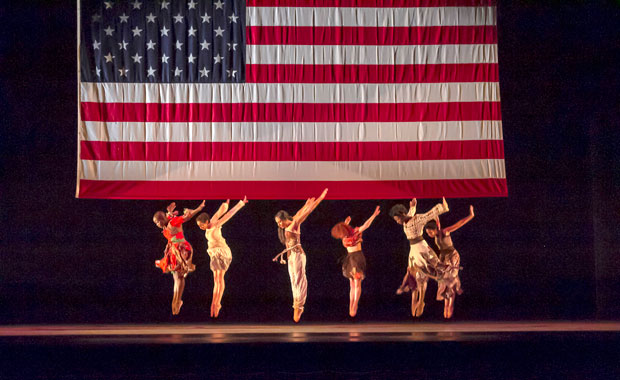
© Steve Wilson. (Click image for larger version)
Alvin Ailey American Dance Theater
All New: Uprising, Suspended Women, Odetta
New York, City Center
18 December 2014
www.alvinailey.org
www.nycitycenter.org
Alvin Ailey American Dance Theater is making a big deal out of its premieres this year, but at the company’s “All New” program during its City Center residency, Matthew Rushing’s Odetta was the standout work.
Conceived as an homage to folk singer and civil rights activist Odetta Holmes, Odetta is a fantastic vehicle for Ailey dancers, and particularly in this season’s casting of Hope Boykin, who had the primary role in Thursday night’s performance.
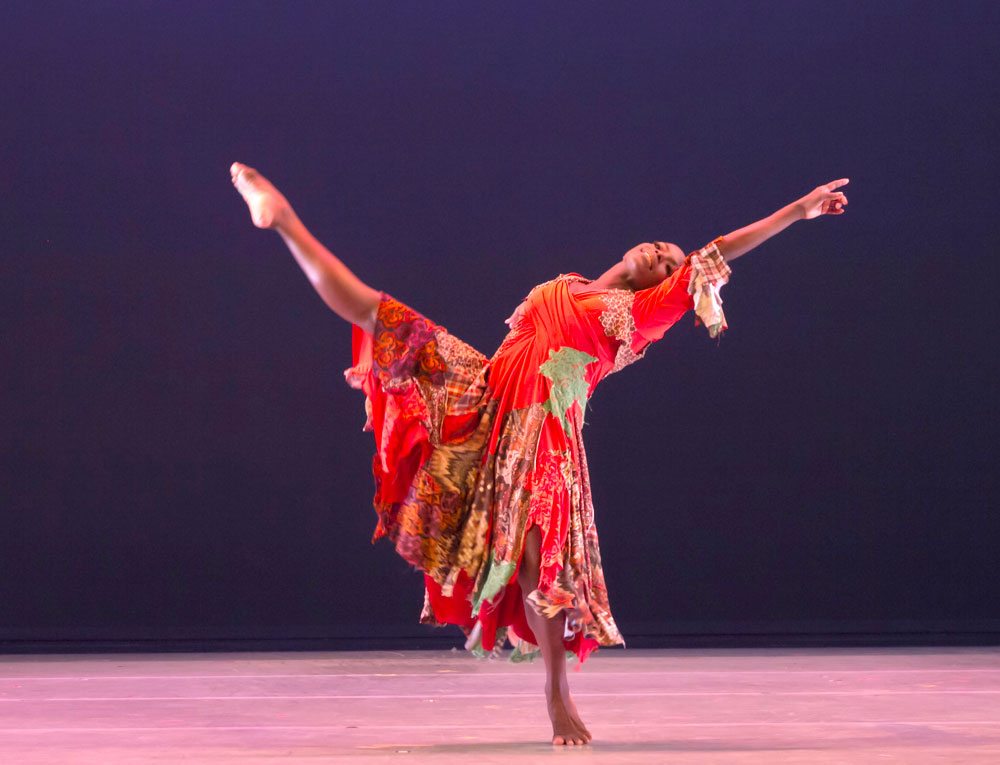
© Steve Wilson. (Click image for larger version)
If today’s generation needs a refresher on who Odetta Holmes is, baby boomers certainly don’t. Bob Dylan credits Holmes as “the first thing that turned [him] on to folk singing.” Johnny Cash was also an early admirer, and had her as a guest on his show (he is visibly in awe in her presence). Odetta’s take on early blues and work songs had a huge influence on the mid-century folk revival and the civil rights movement. Along with Bob Dylan, Joan Baez, Peter Paul and Mary and others, she performed at the 1963 March on Washington. She knew Martin Luther King Jr. and performed for John F. Kennedy. She toured the globe singing songs that documented dark, difficult territories. Odetta was a big deal for big reasons, and Rushing’s tribute is both overdue and deeply moving.
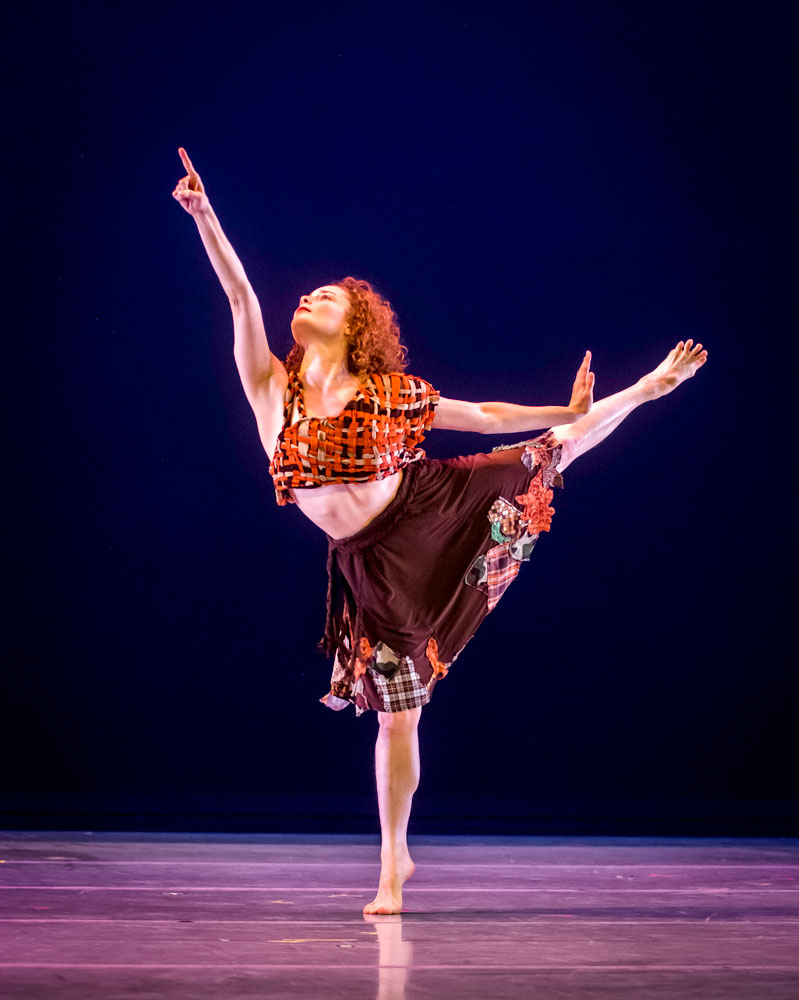
© Mike Strong. (Click image for larger version)
Kicking off with a radiant Boykin in This Little Light of Mine, Odetta includes 10 musical recordings interspersed with spoken word by Holmes, either from interviews or her own song introductions. This Little Light opens with a quote of which Holmes was fond, from Marianne Williamson: “…Our deepest fear is that we are powerful beyond measure. It is our light, not our darkness that most frightens us.” It is an effective segue, and one of many throughout the piece. Boykin’s hips sway in undulations of hula-like fluidity, and all seems right with the world.
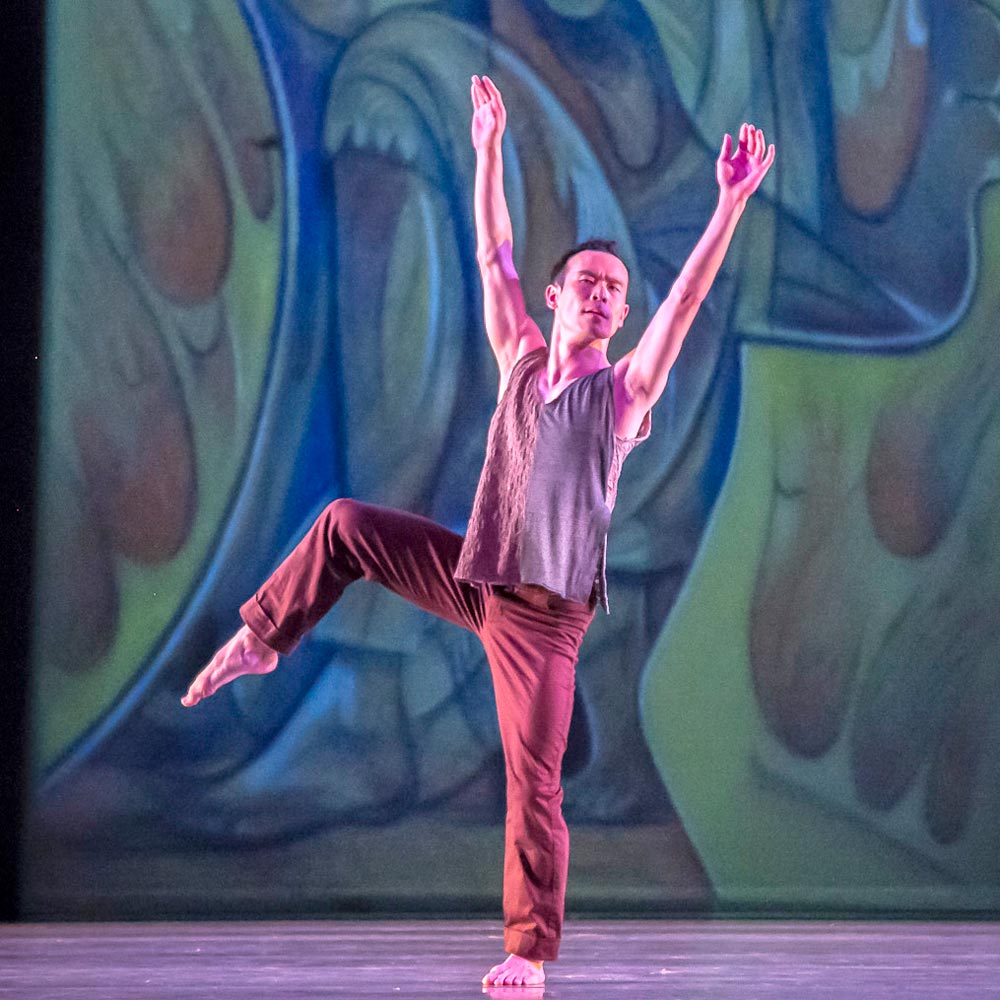
© Steve Wilson. (Click image for larger version)
Odetta is balanced, with equal parts solo and ensemble work. Renaldo Maurice is a potent, raw force in his solo to John Henry. The emotive Kanji Segawa would soften the hardest hearts in Sometimes I Feel Like a Motherless Child. A dancer with a sixth sense for musicality, Segawa fills every phrase, gracing Odetta with some of its highest lyricism. Equally powerful is Megan Jakel’s performance to Glory, Glory which dovetails into the finale, set to Odetta’s Freedom Trilogy. Jakel, with her flaming red curls and earthy modernist movements, is a soulful interpreter. At first frenetic and jittery, she eventually succumbs to a deep grace. In Rushing’s hands, these solos see Ailey at its best, its dancers moving as if they have the power in their limbs to start and stop time, to begin and end the day.
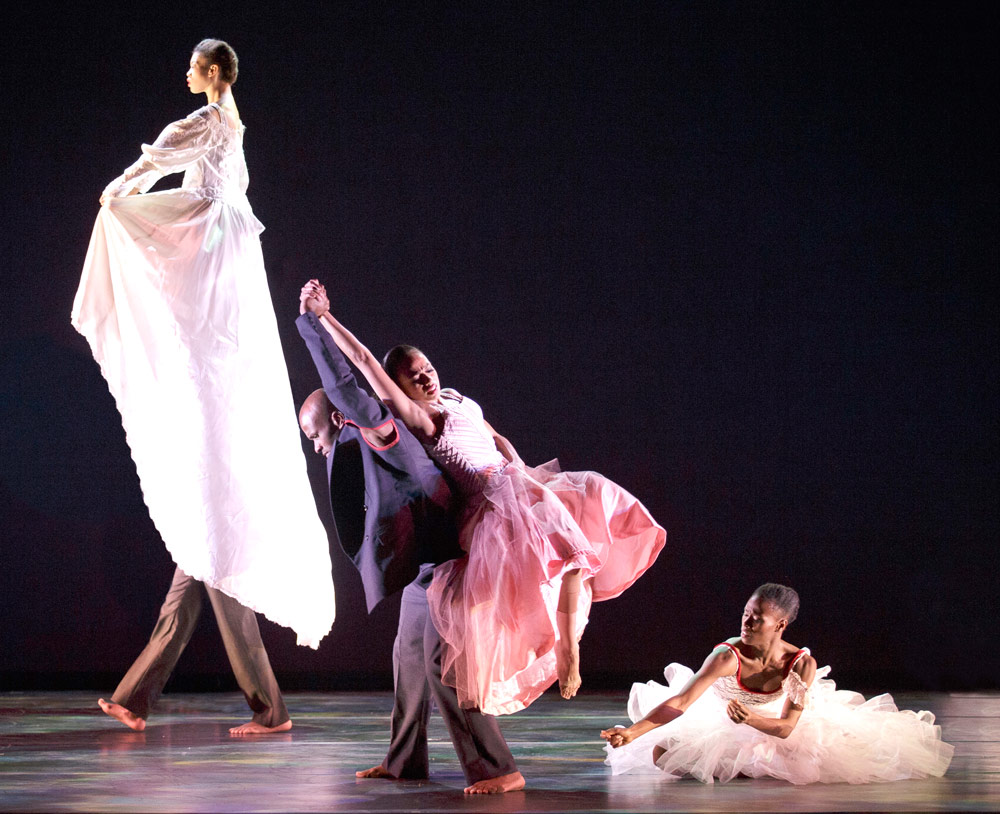
© Paul Kolnik. (Click image for larger version)
In a British television show from the 1980’s, two women stare at a Henry Moore-esque sculpture of a woman. One hates it, and the other finds it a poetic rendition of “womanhood,” to which her friend responds: “If that’s how you feel I’m surprised you can get up in the morning.” This excerpt kept running through my mind while watching Jacqulyn Buglisi’s Suspended Women, which is “dedicated to all women since the beginning of time…” Set to a Ravel piano concerto, Suspended Women features an ensemble cast of Ailey’s women assuming dramatic airs. Dressed in a variety of corseted ball gowns from different eras, the women clutch their ovaries and stalk towards the audience. Women is full of Graham-like shapes (Buglisi was a celebrated Martha Graham principal dancer), but the dancing seems light compared to the melodrama. Women faint and look tearfully at the audience, each of them living their own tragedy to the fullest. Four men waft on and off stage periodically, and the work actually culminates in four of the women draped by or left with a man’s blazer. Are the women, after all their pain, still entranced by male pheromones, their scent, and carnal desire? Or is it supposed to be haunting: no matter how hard women try, our lives are still dictated by a dominant male culture. Of course Buglisi’s intent is hardly a concrete narrative, but the attempts at nuance seem fuzzy, beyond the revelation that womanhood can be inherently painful.

© Paul Kolnik. (Click image for larger version)
Hofesh Shechter’s Uprising entered the Ailey repertory this year, and highlights the extraordinary capabilities of its male dancers. With lots of loping, floor slides and rolls, Uprising at times can feel like watching a slowed-down breakdancing routine. It has a dark, dystopian, violent vibe, like something out of a J.G. Ballard novel. There is cruelty among the ranks, and an uncertain unity that finally forms, at long last, at the end. Shechter, a former member of Batsheva Dance Company, is not immune to Ohad Naharin’s influence, but, at least in Uprising, Shechter leaves too much space. Sequences of toe-to-toe tussling (and slow dancing) go on for too long, and Uprising has too many holes in it and feels, essentially, unresolved. The final revolutionary thrust, including the flag, feels disconnected; there was activity but not necessarily consistent momentum. Shechter, one of today’s bright young things among hot choreographers, is doing some interesting things, but they may be better represented in a different piece.


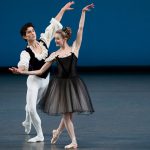



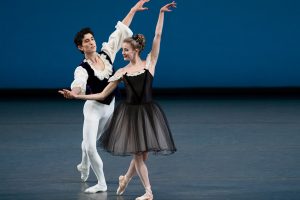
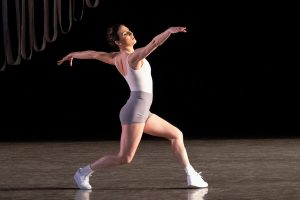

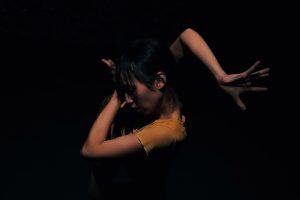


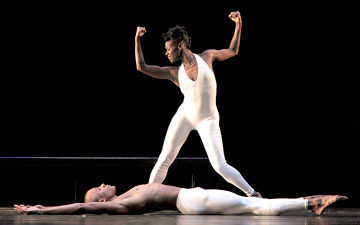

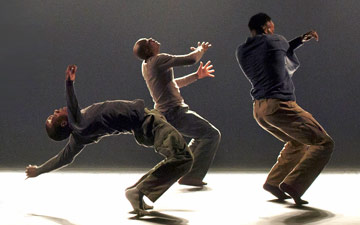

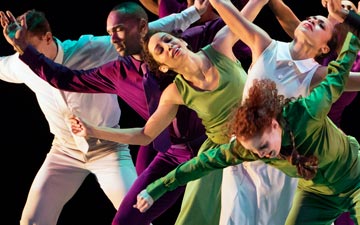
You must be logged in to post a comment.